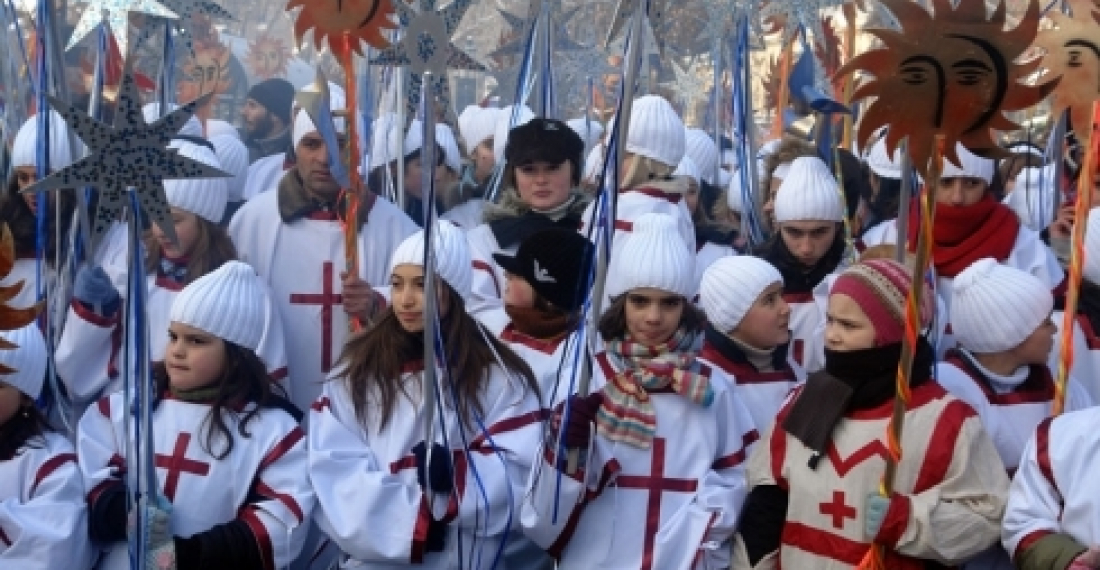Orthodox Christians throughout the Caucasus celebrated Christmas on Thursday, with many believers concluding a forty-day long period of fasting with special religious services and celebrations.
In Tbilisi people took to the streets for the Alilo, a walking procession along Rustaveli Avenue to the Presidential Palace.
Led by members of the clergy, participants bear crosses, banners and icons, bringing gifts for the needy, and giving sweets to children.
His Holiness Ilia II, head of the Orthodox Church in Georgia, wished people a happy Christmas and New Year in a special midnight address. "Christianity is a religion of love but it hates sin," he said at St Trinity temple.
While western countries celebrate Christmas on December 25, in line with the Gregorian calendar, Orthodox communities celebrate it later, adhering to the Julian calendar.
Orthodox Christianity is prevalent throughout the former Soviet Union and former Yugoslavia, and there are also large communities dotted throughout the Middle East and North Africa, as well as in diaspora groups all around the world.
The country with the most Orthodox Christians is Russia, where President Vladimir Putin attended midnight mass in Turginovo, 90 miles from Moscow.
Patriarch Krill, head of the Russian Orthodox Church, gave his support to Russia's bombing campaign in Syria and the fight against "terrorism".
The Armenian Apostolic Church celebrated Christmas on Wednesday. There are also small Orthodox Christian communities in Azerbaijan, which is mostly Muslim.
source: commonspace.eu
photo: Christmas Celebrations in Central Tbilisi on 7 January 2016.






